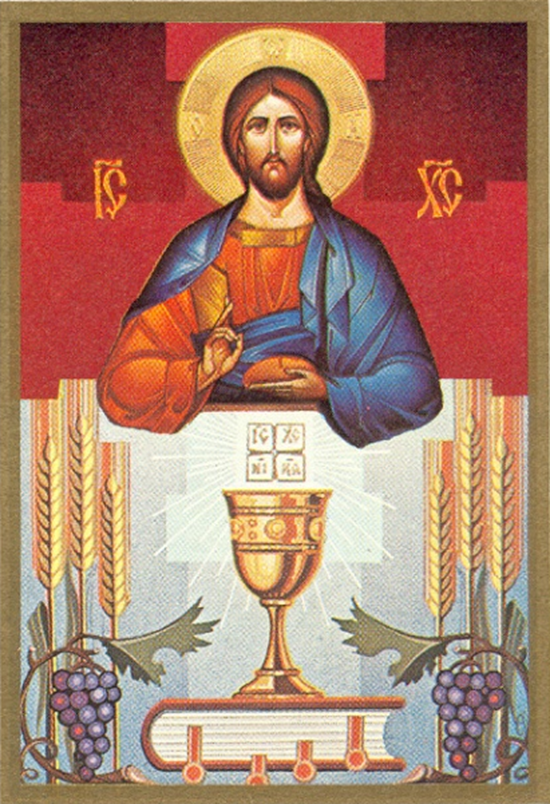Discerning the Bread of Life
Nineteenth Sunday Scripture Readings

I love listening to Neil Degrasse Tyson. He’s a brilliant scientist and a gifted speaker. He’s done more to promote science and our understanding of the universe than anyone since Carl Sagan. Yet, I shudder every time I hear him mention God. His understanding of God would make a seven-year-old cringe.
I interact with dozens of people every week—people who talk about the most significant aspects of their lives. They share about their struggles, their successes and failures, and, to a person, they talk about God. Also, nearly every one of them admits to rejecting the God of their upbringing. Why not? Most people go into adulthood with a spiritual understanding that came out of elementary school. Many are contemptuous of their previous understandings and of those who taught them—those whom they often refer to as “organized religion.” Many espouse a spirituality without religion or, even, a spirituality without God.
We encounter these people this morning in the gospel as we hear, “Is this not Jesus, the son of Joseph? Do we not know his father and mother? Then how can he say, ‘I have come down from heaven?’” In the preceding passage, Jesus had been sharing with them spiritual realities of a profound depth, and, in response, they chose to question his origins. That speaks to a common but tragic human failing. We want—no, we demand—that life lessons be simple and easy to understand, or else. We rebel if our spirituality is not palatable and spoon-fed to us. In other words, we want our spirituality and our God to conform to our expectations. So, for those whom John called “the crowds” when they were following him, and “the Jews” when they became adversarial, when they didn’t receive from Jesus what they expected, they, like their ancestors before them in the desert, grumbled.
The problem arose when they didn’t hear from Jesus, “You will receive the bread of life,” or even “I will give you the bread of life.” Instead, he told them “I am the living bread come down from heaven; whoever eats this bread will live forever …”
I have a book in my personal library called The Annotated Alice. It contains the text of Lewis Carroll’s Alice in Wonderland and provides references and interpretations for nearly every line. Jesus didn’t provide such a reference work to his listeners. Rather, in the best tradition of Eastern spiritual teachers, he gave them complex and often starling statements meant to provoke wonder and questioning. In fact, much of Jesus’s teaching and the entirety of the Bible have more in common with poetry than with descriptive prose. We can’t take religious texts or Jesus’s statements merely at face value. Think about it—what does it mean when we say that God exists when God’s existence clearly has no similarity whatsoever to any other existing thing, including ourselves? Does it even make sense to say that God exists?
In John’s gospel, Jesus says, “I am the bread of life.” That’s not something we can absorb in one sitting. On the contrary. It’s something that could take an entire lifetime to appreciate, and still not exhaust its meaning. It’s a prophetic statement. I’ve spoken before about “prophetic statements” and “prophetic texts.” These communications transcend the day-to-day discourse and exchange of verbiage we’re used to. Prophetic statements are dialogic: they invite us to enter into dialog with them such that they change us in our viewpoints and perspectives and, at the same time, when we encounter them, we see something different there in them. The changes in us that they bring about in us cause changes in our understandings of them. That’s the dialog—they change us, and we change our appreciation of them.
By their very nature, because they open human consciousness to realities beyond our physical, scientific understanding of existence, religious statements are not of this world. They are, in a sense, our tickets to entering behind the looking glass. But they come at a price. It costs us in our intellectual pride to suspend our disbelief. It makes us very uncomfortable to stand in awe before an unfathomable Mystery. We pay a price for it by sacrificing our self-reliance and self-confidence in order to become humbly teachable.
Jesus says in the gospel, “Amen, amen, I say to you, whoever believes has eternal life.” As always, the belief that we read about is not an intellectual assent. It’s not an exercise of knowledge or understanding. We can neither know nor understand God or his ways. No. The belief that’s referred to here is trust—an act of the blind will as we surrender before that great Mystery. It’s in trusting in the God we can neither see nor understand that we’re taken through death to everlasting life. It’s that absolute trust in the love and life that we cannot comprehend that satisfies our life-long hunger for meaning. That ineffable love and life has been made manifest to us in the person of Jesus. To us who believe in Jesus, the eternal Word who is, who was, and who is to come, he offers himself as the living bread from heaven, the bread of eternal life.
Get articles from H. Les Brown delivered to your email inbox.
